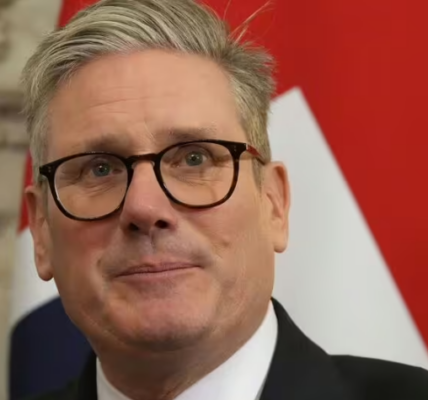Experts fear the Chancellor has pensions in her sights as she attempts to balance the books.
Chancellor Rachel Reeves is eyeing up a £7 billion tax raid on pensions in a desperate bid to plug a black hole in her Budget. Experts warned the Chancellor could push up taxes both on pension contributions paid by working people, and on withdrawals by retirees. Campaigners representing pensioners warned that many had already seen their spending power ravaged by inflation, and were struggling to cope with soaring food and energy bills.
And Shadow Chancellor Sir Mel Stride said: “Pensioners who’ve worked hard and saved responsibly should not be the Chancellor’s cash machine.” Economists at Oxford Economics warned Ms Reeves will be force to find savings of up to £30 billion in her November 26 Budget, including £6 billion caused by the Government’s u-turn over benefit cuts and cuts to winter fuel allowance following a rebellion by Labour MPs. Tax revenues will also be lower than hoped, thanks to the economy growing more slowly than predicted.

Chancellor Rachel Reeves is expected to raise taxes (Image: Getty)
The Chancellor could make “modest” spending cuts but is expected to find most of the money from tax rises. Options include raising £3bn by setting a uniform 30% rate for tax relief on pension contributions, which would mean the Treasury seizes more cash from higher-rate taxpayers saving for retirement.
Ms Reeves could also impose National Insurance for the first time on the £50 billion contribution that employers make to staff pension schemes, raising £2 billion.
Another £2bn could come from cutting the lump sum that people can take tax-free from pension savings to £100,000, down from £268,275 today.
The Chancellor could also raise £300 million by cutting the maximum allowance for tax relief on pension contributions, down from £60,000 per year to £40,000.
These changes would raise more than £7 billion between them. But Ms Reeves is thought likely to extend the current freeze on income tax allowances and NICs thresholds for another two years, affecting people of all ages.
Unless specific measures are taken to protect pensioners, this would ensure more of the state pension, already due to exceed the income tax threshold of £12,570 from April 2017, is liable for tax.
Other new taxes Ms Reeves could introduce include a windfall tax on banks and higher taxes on betting.
Pensioners are already fearing a tough winter ahead according to Later Life Ambitions, which brings together the National Federation of Occupational Pensioners, the Civil Service Pensioners’ Alliance, and the National Association of Retired Police Officers. Spokesperson Eamonn Donaghy said: “Britain’s pensioners need reassurance and clarity not endless speculation that causes stress about how financially tough the winter ahead may be.
“It’s an unsettling time for many pensioners who have seen their spending power ravaged by inflation and who are concerned about paying for food and heating bills.
“The Government’s chopping and changing on the winter fuel payment caused distress and hardship. And freezing income tax personal allowances is an underhand way to drag pensioners into paying more income tax when they have already done so all their working lives.
“The Government must not penalise pensioners yet again to fix their fiscal fiasco.”
Shadow Chancellor, Sir Mel Stride said: “Pensioners who’ve worked hard and saved responsibly should not be the Chancellor’s cash machine.
“Having tried to cut Winter Fuel Payments, at the same time as handing inflation-busting pay rises to their union paymasters, Labour now seems poised to clobber pensioners again.
“Labour should be getting spending under control, especially the ballooning welfare bill, but they are too weak to do that. Rachel Reeves has no plan except to make pensioners pay for her failure.”
Energy bills rose on October 1, when the price cap set by regulator Ofgem rose to £1,755 per year for a typical household paying by Direct Debit. This up from £1,042 in October 2020, although it is lower than the highs reached in 2023.
The cost of food has also soared, with inflation for food and drink at 5.1%, thanks partly to surging prices for beef, butter, milk and chocolate.
A Treasury spokesperson said: “We remain committed to helping our pensioners live their lives with dignity and respect, which is why in April the basic and new state pension increased by 4.1 per cent.
“Pensioners will receive a boost of up to £470 to their income in 2025-26. Our commitment to the triple lock means millions will see their pension rise by up to £1,900 this parliament.”
Labour promised in its general election manifesto not to increase the rates of income tax, VAT or National Insurance, although Ms Reeves increased National Insurance for employers in her first Budget. Freezing the income tax threshold would mean workers pay more, but Labour could argue it has avoided increasing the rate itself.
The economy is already being damaged by fears that tax rises are coming, businesses say.
Shoppers stayed away from high streets in September, with UK footfall was by 1.8% compared to a year ago,.
And the British Retail Consortium said the looming Budget was part of the reason, with London tube strikes and bad weather also playing a role.
BRC chief executive Helen Dickinson said: “Low consumer confidence ahead of a potential tax-rising Budget kept many shoppers away from retail locations in September.”

